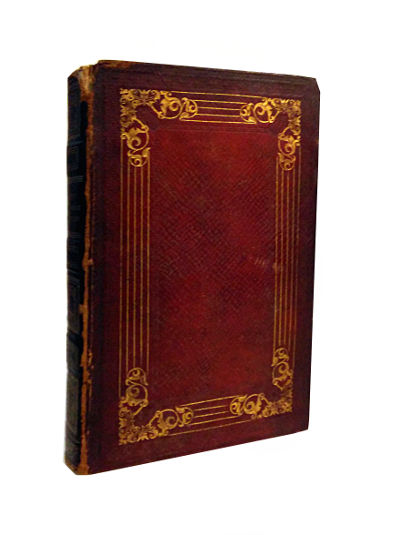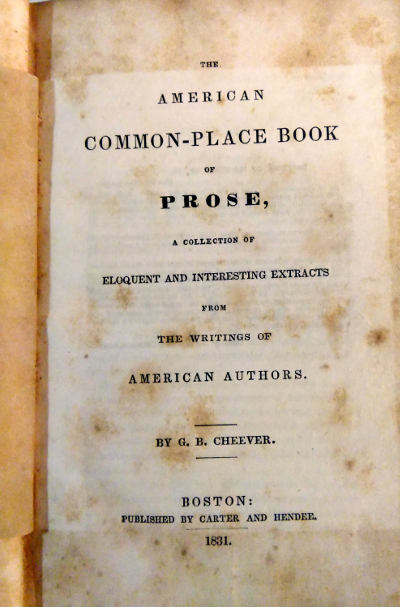A collection of many essays, speeches and fiction from various early American authors, including native American chiefs. Some essays/speeches are very powerful, and deal with the politics of the day as well as general philosophical themes.
Here are some excerpts:
Speech Over the Grave of Black Buffaloe, Chief of the Teton Tribe of Indians, by Big Elk Maha Chief
“Do not grieve. Misfortunes will happen to the wisest and best men. Death with come, and always comes out of season. It is the command of the Great Spirit, and all nations and people must obey. What has passed, and cannot be prevented, should not be grieved for. Be not discouraged or displeased, then, that, in visiting your father here, you have lost your chief”.
Extract from Hyperion, by Josiah Quincy, Jun.
“Who has the front to as, Wherefore do you complain? Who dares assert, that every thing worth living for is not lost, when a nation is enslaved? Are not pensioners, stipendiaries and salary-men, unknown before, hourly multiplying upon us, to riot in the spoils of miserable America? Does not every eastern gale waft us some new insect, even of that devouring kind, which eat up every green thing? Is not the bread taken out of our children’s mouths and given unto the dogs? Are not our estates given to corrupt sycophants, without a design, or even a pretence, of soliciting our assent; and our lives put into the hands of those whose tender mercies are cruelties? Has not an authority in a distant lad, in the most public manner, proclaimed a right of disposing of the all of Americans? In short, what have we to lose? What have we to fear? Are not our distresses more than we can bear? And, to finish all, are not our cities, in a time of profound peace, filled with standing armies, to preclude from us that last solace of the wretched – to open their mouths in complaint, and send forth their cries in bitterness of heart?



